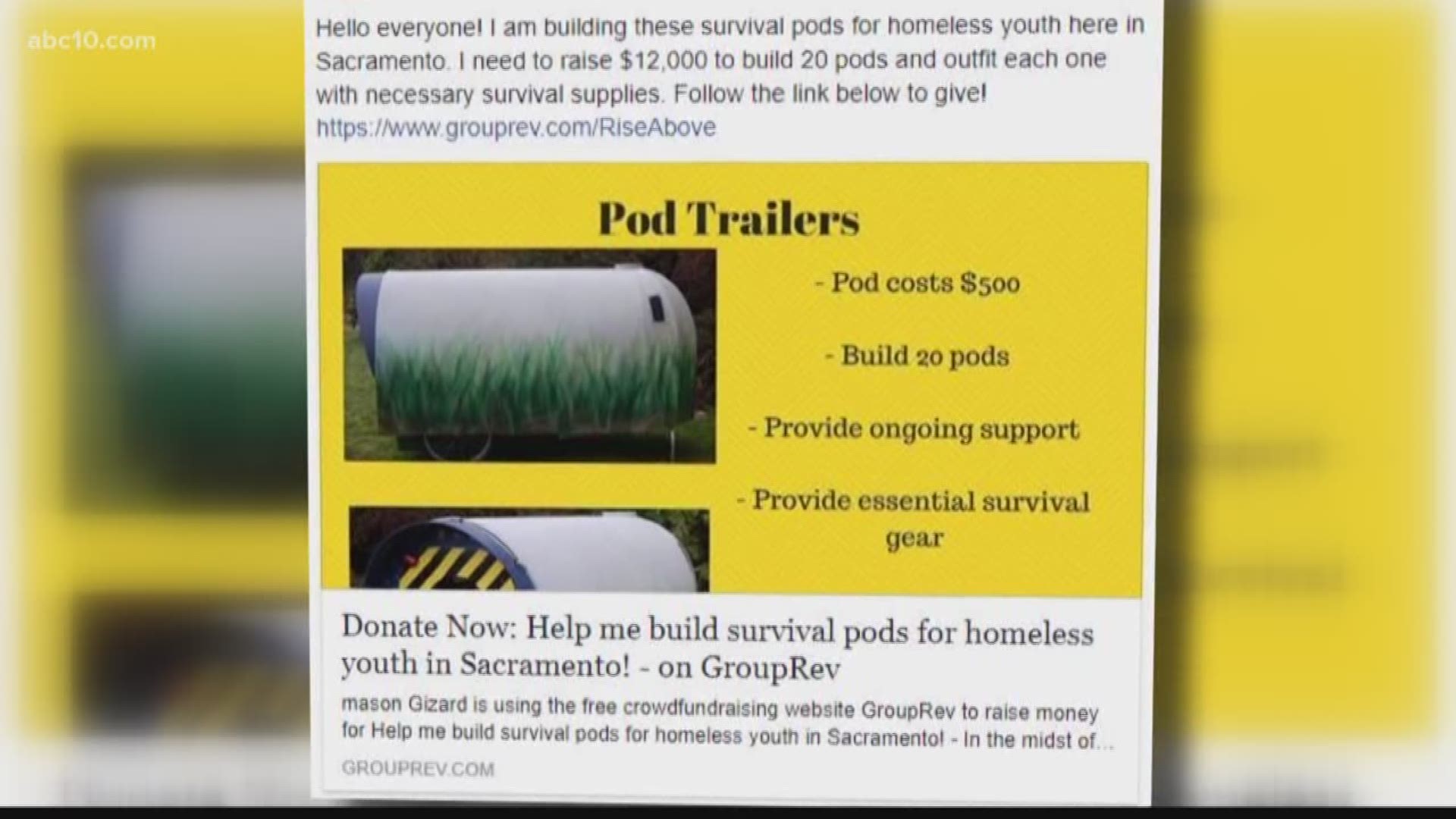A Sacramento man is on a mission to build 20 portable sleeping pods for young adults experiencing homelessness.
As winter approaches and temperatures drop in the Sacramento area, thousands of people have to decide how they're going to spend - and survive - the night. Sacramento County's last official count, back in January, revealed more than 3,600 hundred people in Sacramento County experience homelessness on any given night, and some of those are young adults and kids.
Mason Gizard is director of the non-profit Rise Above, which serves homeless youth in the Sacramento area.
Gizard was watching a YouTube video about a man who made a portable sleeping pod out of lightweight materials.
"For him, it was to go camping free of paying for gas and things like that," Gizard recalled. "But he also said, like, 'This is a great solution for homeless people.'"
That immediately caught Gizard's attention.
"I'm like, 'I work with homeless youth! And this is an awesome application for that idea,'" he recounted.
Gizard is now working to raise $12,000 to build 20 of these lightweight, portable sleeping pods for young adults, ages 18 through 24, experiencing homelessness in Sacramento. He has already raised more than $4,000 and will begin building the pods, with help from local volunteers, in early December.
They cost $500 to build and outfit with cold weather survival gear, like a "pillow, some non-perishable food then a sleeping bag that's warm, and then inside the actual pod, it's insulated," said Gizard.
Each pod weighs about 60 pounds, the man in the YouTube video said, and can be moved by bicycle.
Gizard knows firsthand what these young people are going through. He grew up in and out of homeless shelters. His mother was abused by boyfriends, he said.
"The last time me and my family were homeless, the shelter that we were going to stay in didn't allow for teenage boys, so my family could stay there but I couldn't," said Gizard. "I ended up living in a house that they were selling drugs out of, there were 12 people living in a two-bedroom. Prostitution in the bathroom."
His personal experiences help fuel his passion to help young people going through similar challenges in Sacramento.
"Whenever I'm thinking about where the situations, the compromising situations, that these youths are in, I have not just, like, a good idea; I have personal experience of what that can lead to and what these kids are exposed to," he said.
His childhood lead him to write a book called Dad in a Day: When My Mom's Kids Became My Own.
ABC10 spoke with Sacramento Housing Alliance executive director Darryl Rutherford about the region's homelessness crisis. Throughout Sacramento County, he said, there are 700 year-round emergency shelter beds. About 200 more beds are added come December, once winter shelters open.
"Every community throughout the Sacramento region need to be prepared to do their share at helping us solve this crisis, whether that's accepting a shelter in their community or being an advocate to build more affordable homes and find new sources of funding to build those homes," said Rutherford.
This year, he said, the city of Sacramento is attempting to open an "emergency triage shelter" in the Woodlake community in north Sacramento, which would house 200 people a night, but also be open 24/7 to offer people a warm place to spend cold, wet days. The triage shelter, he said, would also aim to allow a broader variety of people to stay there.
"The biggest challenge we have is with the shelter systems, that there are a lot of barriers that people experience in order to even be sheltered at night," said Rutherford.
"They're going to be allowed to have pets and some of (the shelters) are even looking at allowing couples to reside together," he said. "Those are low-barrier shelter systems that we need to see more of throughout the region here."
Winter shelters and sleeping pods are good temporary fixes for keeping people warm and safe this winter, but the ultimate solution, Rutherford said, is affordable housing and right now, that is in incredibly short supply.

